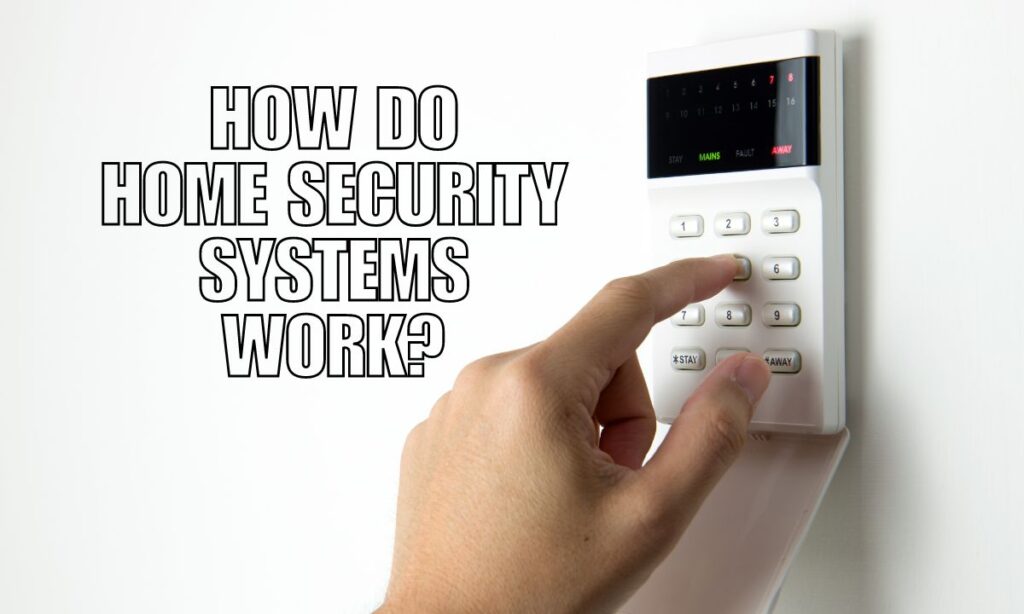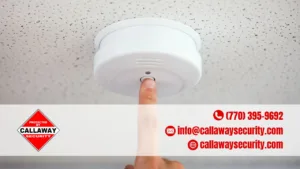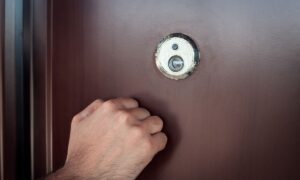Home security systems protect homes by using sensors, cameras, and alarms to detect and deter intruders.
A home security system is a network of interconnected devices that work together to monitor and secure a property. These systems typically include motion detectors, contact sensors for doors and windows, surveillance cameras, sirens, and a central control panel. Many modern systems offer smart home integration and professional monitoring services, ensuring homeowners receive real-time alerts and emergency assistance when needed.
Key Takeaways:
- Home security systems detect unauthorized entry and threats using sensors, cameras, and alarms.
- Motion detectors and contact sensors monitor movement and entry points.
- Security cameras provide real-time surveillance and video recording.
- Alarms and sirens deter intruders and alert homeowners and neighbors.
- Professional monitoring services ensure quick emergency response.
- Smart home integration allows remote monitoring and control via mobile apps.
- Wireless and wired systems offer different levels of reliability and convenience.

Components of a Home Security System
A well-designed security system includes several essential components that work together to safeguard a property:
1. Control Panel
The control panel is the brain of the system. It communicates with all connected devices, processes signals, and triggers alarms when a threat is detected.
2. Sensors
- Contact Sensors: Installed on doors and windows, these sensors detect when an entry point is opened.
- Motion Sensors: Detect movement in designated areas and can differentiate between people and pets.
- Glass Break Sensors: Trigger an alarm when they detect the sound frequency of breaking glass.
3. Security Cameras
- Indoor Cameras: Monitor activity inside the home.
- Outdoor Cameras: Deter intruders and provide perimeter surveillance.
- Doorbell Cameras: Capture video and allow communication with visitors remotely.
- Wireless vs. Wired Cameras: Wireless cameras provide flexibility, while wired systems offer stable connections.
4. Alarms and Sirens
Loud alarms deter intruders and alert occupants or neighbors of a security breach.
5. Keypads and Smart Locks
Keypads allow users to arm and disarm the system using a security code. Smart locks provide keyless entry and remote access control.
6. Environmental Hazard Detectors
- Smoke Detectors: Identify smoke and potential fires.
- Carbon Monoxide Detectors: Detect CO gas leaks.
- Flood Sensors: Monitor for water leaks or flooding.
- Temperature Sensors: Detect extreme temperature changes.
How Home Security Systems Work
Most home security systems function through a combination of wired or wireless connections, allowing seamless communication between devices.
1. Arming and Disarming
- Users activate or deactivate the system using a keypad, key fob, voice command, or mobile app.
- Some systems offer geofencing, automatically adjusting security settings based on the homeowner’s location.
2. Sensor Activation
- When armed, sensors actively monitor entry points and motion.
- If a door or window is opened, or motion is detected, the system registers an event.
3. Alarm Triggering
- If a breach occurs, the system sounds an alarm and sends alerts to the homeowner.
- Integrated sirens scare away intruders and notify those nearby.
4. Notification and Monitoring
- Homeowners receive instant notifications via text, email, or app alerts.
- Professionally monitored systems notify a monitoring center, which assesses the situation and contacts emergency responders if needed.
Professional Monitoring vs. Self-Monitoring
Professional Monitoring
- 24/7 surveillance by security professionals.
- Rapid emergency response.
- Monthly subscription fees apply.
Self-Monitoring
- Users monitor their own system via mobile alerts.
- No monthly fees.
- Requires prompt action from the homeowner.
Wireless vs. Wired Home Security Systems
| Feature | Wireless Systems | Wired Systems |
|---|---|---|
| Installation | Easy, DIY-friendly | Requires professional installation |
| Reliability | May experience signal interference | More stable and reliable |
| Portability | Can be moved easily | Fixed in place |
| Maintenance | Requires battery changes | Needs wiring upkeep |
| Cost | Usually more expensive upfront | More affordable but with labor costs |
Smart Home Integration and AI Advancements
- Voice Control: Systems integrate with Alexa, Google Assistant, and Siri.
- Automation: Security systems sync with smart lights, thermostats, and door locks.
- AI Surveillance: Facial recognition and object detection enhance security.
Additional Facts About Home Security Systems
- Burglars are less likely to target homes with visible security systems.
- Wireless systems are more resistant to power outages when equipped with battery backups.
- Some insurance companies offer discounts for homes with monitored security systems.
- DIY security systems provide flexibility but may lack professional oversight.
Frequently Asked Questions
1. Can I install a home security system myself?
Yes, many wireless systems are designed for DIY installation. However, wired systems typically require professional setup.
2. Do security cameras work without Wi-Fi?
Yes, wired cameras can function without Wi-Fi, but many modern wireless cameras require an internet connection for remote access.
3. Will my security system work during a power outage?
Most systems with battery backups continue functioning during power outages. Cellular-based systems remain operational even if Wi-Fi is down.
4. What is the best home security system?
The best system depends on your needs. Popular options include ADT, Ring, SimpliSafe, and Arlo.
5. Can I monitor my security system remotely?
Yes, most modern security systems offer mobile apps that allow remote monitoring and control.
Final Thoughts: Securing Your Home with the Right System
A home security system is a vital investment for protecting your family and property. Whether you choose a professional monitoring service or a DIY setup, understanding how these systems work helps you make informed decisions. By combining sensors, cameras, alarms, and smart technology, you can enhance your home’s security and enjoy greater peace of mind.
If you’re considering installing a home security system, Callaway Security™ is here to help. Our team of experts can assess your home’s unique security needs and recommend the best system to protect your property and your family.
We offer a wide range of equipment, including security cameras, door and window sensors, motion sensors, glass break sensors, and more. Plus, with our professional monitoring services, you can have peace of mind knowing that your home is being monitored 24/7, even during power outages. Kindly contact us today to learn more about our services and how we can assist you in protecting your home.












